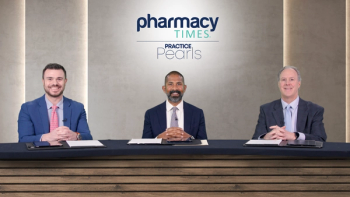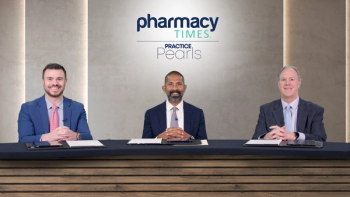Optimizing Patient Care in Hepatic Encephalopathy

Arun Jesudian, MD; Ralph J. Riello, PharmD, BCPS, and Chas McCormick, RPh, MBA, delve into the complexities of hepatic encephalopathy, exploring the various risk factors that contribute to its development, such as alcohol-induced cirrhosis, sarcopenia, CNS medications, opioids, and other potential triggers.

Medical experts examine the current treatment landscape and goals for patients with hepatic encephalopathy, addressing patient outcomes and hospital discharge planning, while also acknowledging that some patients may require rehabilitation or long-term care facilities to sustain remission and optimize their recovery.

Panelists explore the critical roles of lactulose and rifaximin in managing hepatic encephalopathy, a potentially severe condition that can lead to intensive care unit (ICU) admission.

Arun Jesudian, MD; Ralph J. Riello, PharmD, BCPS, and Chas McCormick, RPh, MBA, highlight the importance of adhering to evidence-based guidelines and utilizing approved medications in the management of hepatic encephalopathy, emphasizing their crucial role in preventing patient relapse within 30 days of hospital discharge.

Medical experts discuss the challenges of starting treatment for newly diagnosed, cognitively impaired patients, addressing prescription processes, patient education, and the role of cost, care quality, and convenience in promoting successful medication adherence.

KOLs emphasize the crucial role of collaboration between pharmacists and physicians in managing hepatic encephalopathy, stressing the importance of monitoring sedating medications, polypharmacy, and patient response to HE therapy, while making necessary adjustments to optimize care.

Ralph J. Riello, PharmD, BCPS, discusses the adverse events associated with hepatic encephalopathy (HE) treatments and the importance of encouraging patients to continue first-line medications despite adverse reactions to prevent HE recurrence.

Arun Jesudian, MD; Ralph J. Riello, PharmD, BCPS, and Chas McCormick, RPh, MBA, highlight the crucial role of pharmacies in providing unbiased patient education. They also emphasize the significance of incorporating treatment protocols into medical health records and utilizing various tools to optimize the success of hepatic encephalopathy treatment.

Experts explore strategies for motivating treatment adherence and the importance of providers ensuring patients thoroughly understand their condition.

Key opinion leaders highlight essential considerations for pharmacists, including medication costs, staying current with the latest advancements and clinical trials in hepatic encephalopathy (HE), and understanding the incidence of the disease.

Key opinion leaders emphasize crucial factors for pharmacists to consider, such as medication costs, staying updated on the latest hepatic encephalopathy (HE) clinical advancements and trials, and understanding disease incidence, which can help prevent recurrence, reduce healthcare costs, and improve patients' cognitive function when managed effectively.

Panelists highlight the significance of obtaining leadership buy-in and involving all care team members, while also sharing strategies for coordinating care effectively across the entire team.

In their concluding remarks, Arun Jesudian, MD; Ralph J. Riello, PharmD, BCPS, and Chas McCormick, RPh, MBA, summarize the key takeaways and highlight the persistent unmet needs in the management of hepatic encephalopathy.


